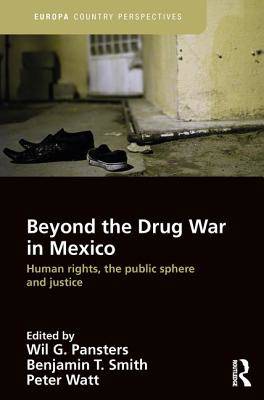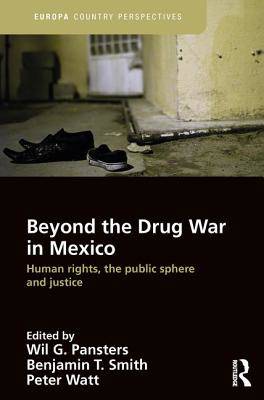
- Retrait gratuit dans votre magasin Club
- 7.000.000 titres dans notre catalogue
- Payer en toute sécurité
- Toujours un magasin près de chez vous
- Retrait gratuit dans votre magasin Club
- 7.000.000 titres dans notre catalogue
- Payer en toute sécurité
- Toujours un magasin près de chez vous
Beyond the Drug War in Mexico
Human Rights, the Public Sphere and Justice
Description
This volume aims to go beyond the study of developments within Mexico's criminal world and their relationship with the state and law enforcement. It focuses instead on the nature and consequences of what we call the 'totalization of the drug war', and its projection on other domains which are key to understanding the nature of Mexican democracy.
The volume brings together chapters written by distinguished scholars from Mexico and elsewhere who deal with three major questions: what are the main features of and forces behind the persistent militarization of the drug war in Mexico, and what are the main consequences for human rights and the rule of law; what are the consequences of these developments on the public sphere and, more specifically, on the functioning of the press and freedom of expression; and how do ordinary people engage with the effects of violence and insecurity within their communities, and which initiatives and practices of 'justice from below' do they develop to counter an increased sense of vulnerability, suffering and impunity?
Spécifications
Parties prenantes
- Editeur:
Contenu
- Nombre de pages :
- 212
- Langue:
- Anglais
- Collection :
Caractéristiques
- EAN:
- 9781857439090
- Date de parution :
- 01-11-17
- Format:
- Livre relié
- Format numérique:
- Genaaid
- Dimensions :
- 156 mm x 233 mm
- Poids :
- 467 g






